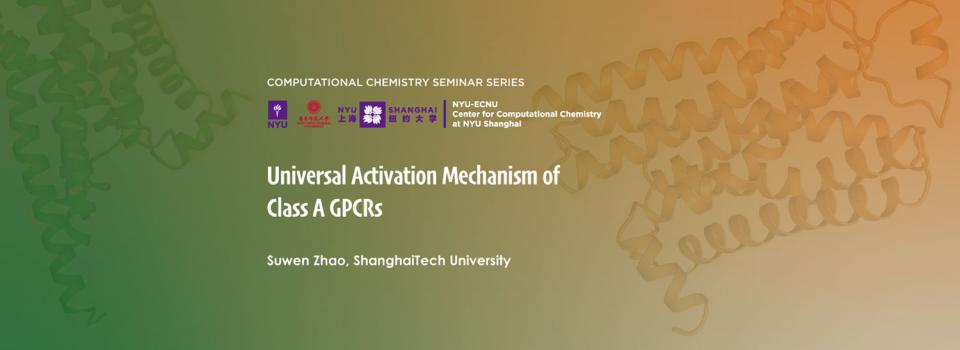
Abstract:
Class A G protein-coupled receptors (GPCRs) influence virtually every aspect of human physiology. Understanding receptor activation mechanism is critical for discovering novel therapeutics since about one-third of all marketed drugs target members of this family. GPCR activation is an allosteric process that couples agonist binding to G protein recruitment, with the hallmark outward movement of transmembrane helix 6 (TM6). However, what leads to TM6 movement and the key residue level changes of this trigger remain less well understood. Here, we developed a framework to quantify conformational changes. By analysing the conformational changes in 234 structures from 45 class A GPCRs, we discovered a universal GPCR activation pathway comprising of 34 residue pairs and 35 residues. The pathway unifies previous findings into a universal activation mechanism and strings together the scattered key motifs such as CWxP, DRY, Na+ pocket, NPxxY and PIF, thereby directly linking the bottom of ligand-binding pocket with G protein coupling region. Site-directed mutagenesis experiments support the continuous and modular nature of the universal activation mechanism and reveal that rational mutations of residues in the universal activation pathway can be used to obtain receptors that are constitutively active or inactive.
Biography:
Dr. Suwen Zhao received her bachelor degree from University of Science and Technology of China in 2004, then she entered Columbia University in the City of New York for graduate study and received her Ph.D. degree in 2009. After that, she moved to the west coast of the United States to pursue her postdoctoral training at University of California, San Francisco. She went back to China in 2014, joining iHuman Institute and School of Life Science and Technology at ShanghaiTech University. Suwen runs a computational chemistry and biology lab, and her research focuses on GPCR mechanism study and ligand discovery.
Seminar Series by the NYU-ECNU Center for Computational Chemistry at NYU Shanghai


